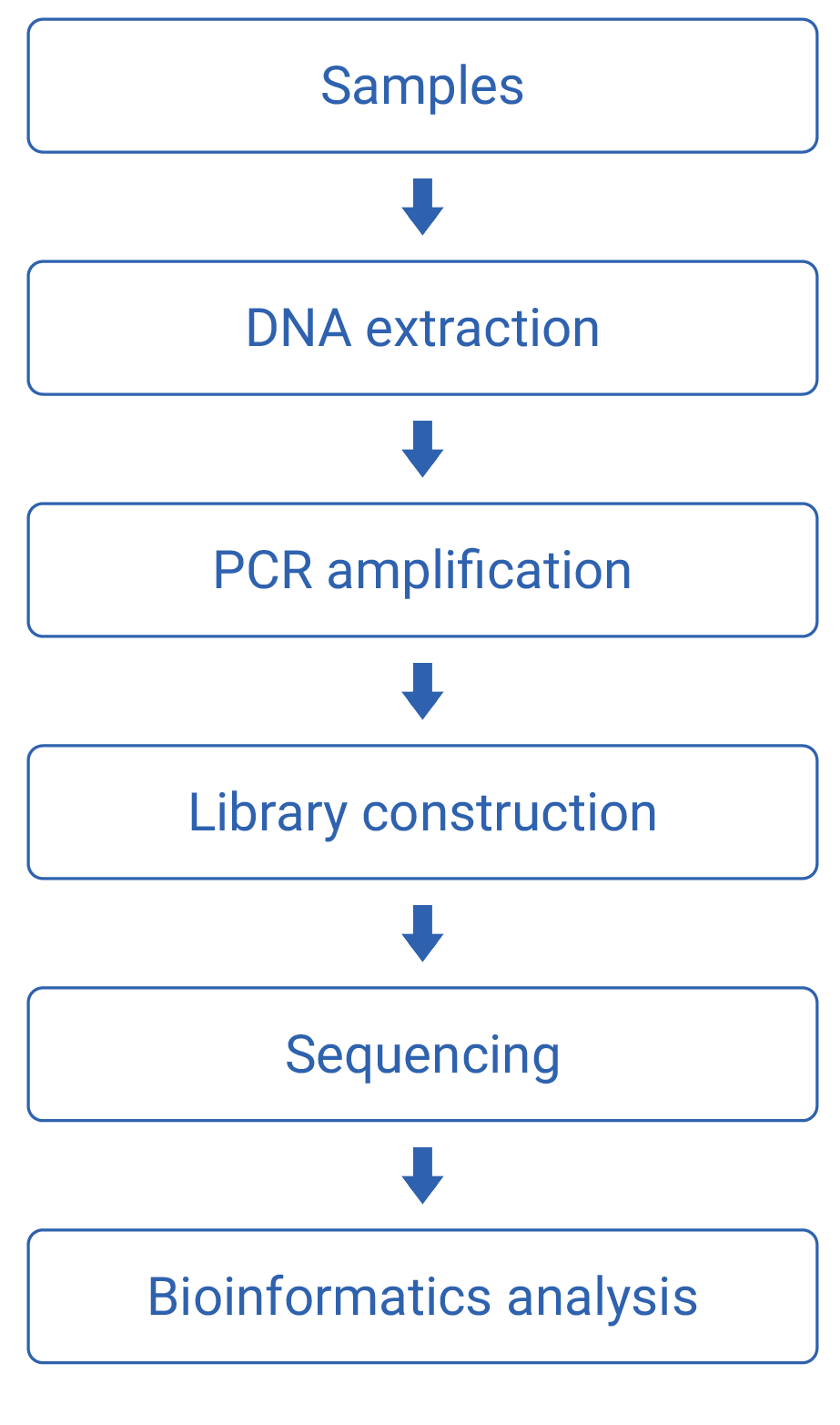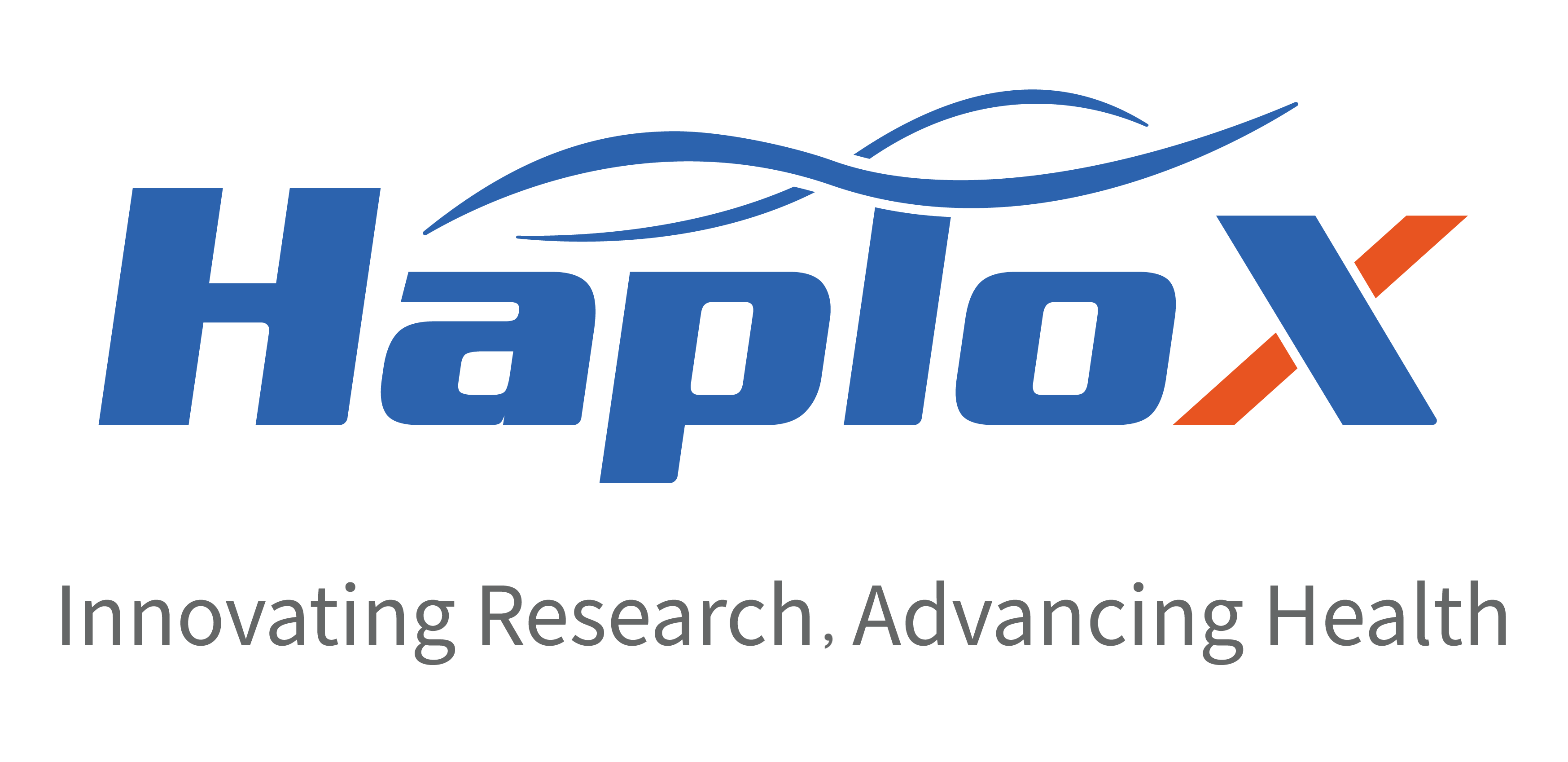
- Home
- About Us
- Service
- Application
- Technology
- Resource
- Contact Us

Metagenomics Sequencing
Metagenomics sequencing is a powerful technique that analyzes the collective genomic content of entire microbial communities directly from environmental samples, enabling the study of microbial diversity, gene functions, and interactions without the need for culturing, and finds applications in environmental science, medicine, agriculture, and biotechnology.
Work flow

Technical Parameters
| Sequencing range | Whole genome of communities |
| Sequencing strategy | NGS PE150 |
| Sequencing throughput | 6Gb |
| Data quality | Fastq files, Q30≥85% |
| Data analysis | Standard+advanced analysis |
| TAT | Standard: 25 WD |
Applications
| Environmental Science | Antibiotic and Drug Discovery | Food Safety and Fermentation Industry |
| Medical Research | Agriculture | Bioenergy |
Bioinformatics Analysis
1.Data Quality Control
2.Removal of Host Sequences (if host is present)
3.Metagenomic Assembly (Data assembly, assembly result evaluation)
4.Gene Prediction Analysis
5.Gene Abundance Analysis
- 5.1 Statistical analysis of gene abundance
- 5.2 Core-pan gene analysis
- 5.3 Analysis of correlations between samples
- 5.4 Analysis of differences in gene numbers
6.Species Annotation
- 6.1 Species annotation table
- 6.2 Multilevel species composition charts
- 6.3 Statistics on species abundance
- 6.4 Species composition bar charts
- 6.5 Species clustering trees
- 6.6 PCA (Principal Component Analysis)
- 6.7 PCoA (Principal Coordinates Analysis)
- 6.8 NMDS (Non-metric Multidimensional Scaling)
- 6.9 UPGMA (Unweighted Pair Group Method with Arithmetic Mean) clustering tree
- 6.10 Anosim analysis
7.Functional Annotation
- 7.1 GO (Gene Ontology)
- 7.2 KEGG (Kyoto Encyclopedia of Genes and Genomes)
- 7.3 COG (Clusters of Orthologous Groups)
- 7.4 CAZy (Carbohydrate-Active enZYmes)
- 7.5 PHI (Pathogen Host Interactions)
- 7.6 VFDB (Virulence Factor Database)
- 7.7 CARD (Comprehensive Antibiotic Resistance Database)
8.Species Difference Analysis
- 8.1 Metastats analysis
- 8.2 Lefse analysis (Linear Discriminant Analysis Effect Size)
Advantages
![]() Culture-Independence
Culture-Independence
![]() Comprehensive Microbial Profiling
Comprehensive Microbial Profiling
![]() Functional Insights
Functional Insights
